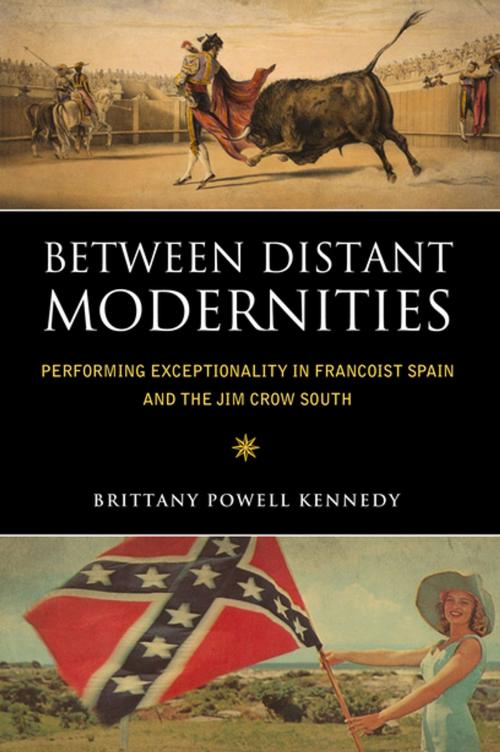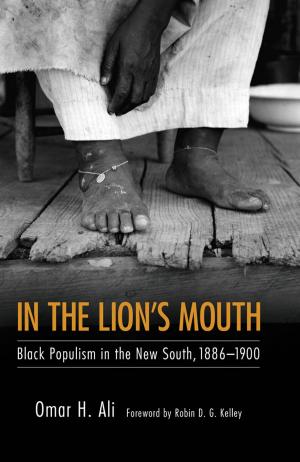Between Distant Modernities
Performing Exceptionality in Francoist Spain and the Jim Crow South
Fiction & Literature, Literary Theory & Criticism, European, Spanish & Portuguese, American| Author: | Brittany Powell Kennedy | ISBN: | 9781626744905 |
| Publisher: | University Press of Mississippi | Publication: | February 12, 2015 |
| Imprint: | University Press of Mississippi | Language: | English |
| Author: | Brittany Powell Kennedy |
| ISBN: | 9781626744905 |
| Publisher: | University Press of Mississippi |
| Publication: | February 12, 2015 |
| Imprint: | University Press of Mississippi |
| Language: | English |
For centuries, Spain and the South have stood out as the exceptional "other" within U.S. and European nationalisms. During Franco's regime and the Jim Crow era both violently asserted a haunting brand of national "selfhood." Both areas shared a loss of splendor and a fraught relation with modernization, and they retained a sense of defeat. Brittany Powell Kennedy explores this paradox not simply to compare two apparently similar cultures but to reveal how we construct difference around this self/other dichotomy. She charts a transatlantic link between two cultures whose performances of "otherness" as assertions of "selfhood" enact and subvert their claims to exceptionality. Perhaps the greatest example of this transatlantic link remains the War of 1898, when the South tried to extract itself from but was implicated in U.S. imperial expansion and nation-building. Simultaneously, the South participated in the end of Spain as an imperial power.
Given the War of 1898 as a climactic moment, Kennedy explores the writings of those who come directly after this period and who attempted to "regenerate" what was perceived as "traditional" in an agrarian past. That desire recurs over the century in novels from writers as diverse as William Faulkner, Camilo José Cela, Walker Percy, Eudora Welty, Federico García Lorca, and Ralph Ellison. As these writers wrestle with ideas of Spain and the South, they also engage questions of how national identity is affirmed and contested.
Kennedy compares these cultures across the twentieth century to show the ways in which they express national authenticity. Thus she explores not only Francoism and Jim Crow, but varied attempts to define nationhood via exceptionalism, suggesting a model of performativity that relates to other "exceptional" geographies.
For centuries, Spain and the South have stood out as the exceptional "other" within U.S. and European nationalisms. During Franco's regime and the Jim Crow era both violently asserted a haunting brand of national "selfhood." Both areas shared a loss of splendor and a fraught relation with modernization, and they retained a sense of defeat. Brittany Powell Kennedy explores this paradox not simply to compare two apparently similar cultures but to reveal how we construct difference around this self/other dichotomy. She charts a transatlantic link between two cultures whose performances of "otherness" as assertions of "selfhood" enact and subvert their claims to exceptionality. Perhaps the greatest example of this transatlantic link remains the War of 1898, when the South tried to extract itself from but was implicated in U.S. imperial expansion and nation-building. Simultaneously, the South participated in the end of Spain as an imperial power.
Given the War of 1898 as a climactic moment, Kennedy explores the writings of those who come directly after this period and who attempted to "regenerate" what was perceived as "traditional" in an agrarian past. That desire recurs over the century in novels from writers as diverse as William Faulkner, Camilo José Cela, Walker Percy, Eudora Welty, Federico García Lorca, and Ralph Ellison. As these writers wrestle with ideas of Spain and the South, they also engage questions of how national identity is affirmed and contested.
Kennedy compares these cultures across the twentieth century to show the ways in which they express national authenticity. Thus she explores not only Francoism and Jim Crow, but varied attempts to define nationhood via exceptionalism, suggesting a model of performativity that relates to other "exceptional" geographies.















